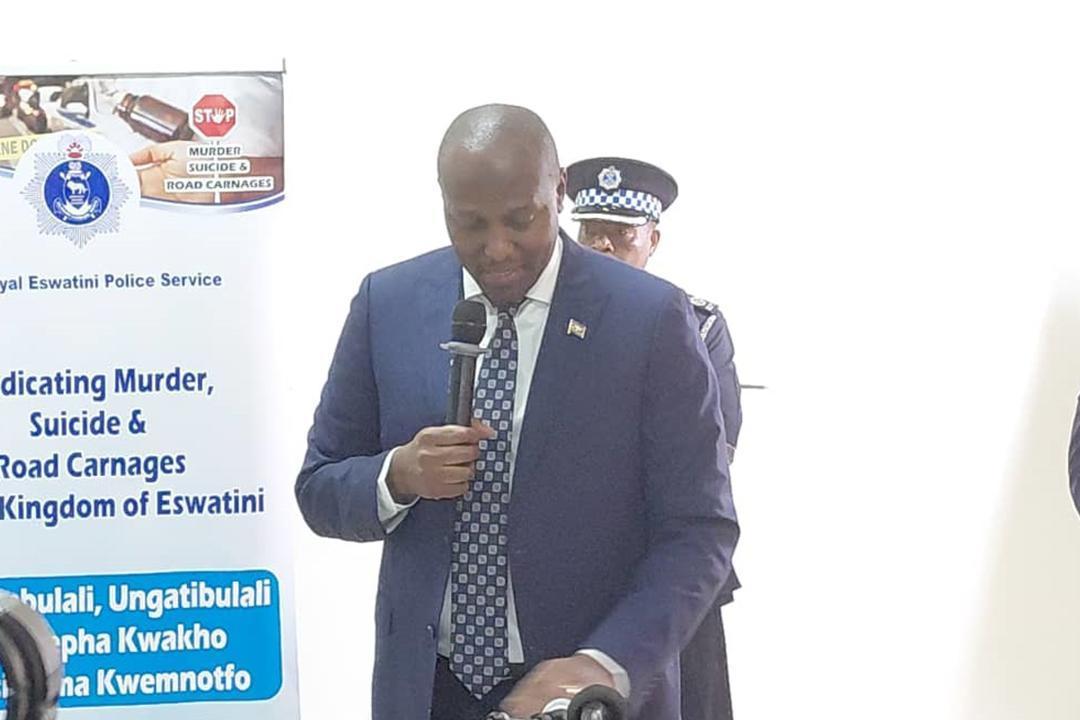Africa-Press – Eswatini. Prime Minister Russell Mmiso Dlamini has called on Members of Parliament (MPs) to ensure that national legislation—particularly the Police Service Regulations of 2025—remains enabling, empowering institutions to deliver efficient and effective services to the people of Eswatini.
Speaking on Monday, 10 November 2025, at The George Hotel in Manzini, where MPs from the Portfolio Committee of the Prime Minister’s Office had gathered with the Police top brass, led by NatCom Vusi Manoma Masango, to deliberate on the new regulations, Dlamini emphasised that the country’s legal framework should support, not hinder, the work of public servants.
“The Police Service Regulations must be enabling, not disabling,” he said. “They should help the police to deliver their mandate effectively, rather than present obstacles that make their work harder.”
The Prime Minister explained that this principle should apply to all legislation passed by Parliament, arguing that laws must empower government institutions to implement policy efficiently and improve the lives of emaSwati. He urged legislators to take a forward-looking approach, ensuring that each new law strengthens national capacity and drives progress.
Opening his remarks with a verse from John 9:4, Dlamini reminded the audience of the urgency of service. “We must work the works of Him who sent us while it is day; night is coming, when no one can work,” he said, drawing a parallel between spiritual duty and the nation’s collective responsibility to take decisive action.
The meeting was attended by Members of the Portfolio Committee, senior officials from the Royal Eswatini Police Service (REPS) led by National Commissioner Vusi Masango, and representatives from the Attorney General’s Office. The session formed part of Parliament’s ongoing review of the Police Service Act of 2018, aimed at aligning the new regulations with the Act’s objectives.
The Prime Minister reiterated the need for legislation that enhances efficiency across government. “We need more enabling legislation, not disabling regulations, in all aspects of the country’s operations,” he said. He gave the example of procurement procedures, suggesting that overly rigid processes can delay critical projects. “Procurement regulations need to be reviewed so that they promote efficiency instead of slowing down vital processes,” he explained.
Dlamini observed that some of the country’s existing laws were written decades ago and may no longer reflect the realities of modern governance. He called for a comprehensive review and modernisation of outdated statutes to remove unnecessary barriers to progress. “Let us review and modernise those that still make things difficult,” he said. “The goal is to ensure seamless operations across all government departments.”
Turning to the police service, the Prime Minister commended officers for their commitment to maintaining peace, protecting citizens, and upholding the rule of law. He reminded the public that security and safety are shared responsibilities. “The police are doing a pivotal job, and we need to work hand in hand with them,” he said. “The saying ‘Nawe uliphoyisa’ is a powerful reminder that everyone shares responsibility for ensuring law and order.”
Dlamini reaffirmed government’s dedication to strengthening the Police Act No. 22 of 2018, explaining that the new Police Service Regulations of 2025 had already been submitted to Parliament for consideration. “These regulations have already been presented to the House, and I am confident that Parliament will continue to support this important work,” he said, extending his gratitude to MPs and parliamentary staff for their cooperation.
Concluding his address, the Prime Minister highlighted the broader significance of the government’s legal reform agenda. He said that transforming Eswatini’s legal and regulatory framework was key to unlocking efficiency, accountability, and innovation across all sectors.
“Together, through enabling laws and collective effort, we can build a more responsive and effective government—one that truly serves emaSwati and delivers,” he said.
The Prime Minister’s call resonated strongly with those present, setting an optimistic tone for the country’s path toward more agile governance. His message underscored the belief that when laws empower rather than constrain, they become tools for transformation—paving the way for a more efficient public service and a stronger, more prosperous Eswatini.
For More News And Analysis About Eswatini Follow Africa-Press







